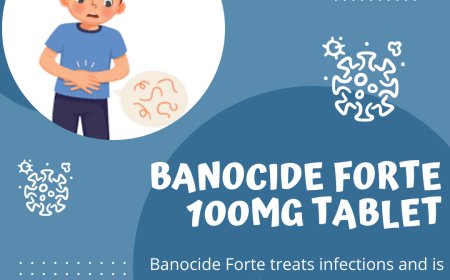Psoriatic arthritis
Advocare Arthritis Osteoporosis and Rheumatology Associates specializes in treating psoriatic arthritis, inflammatory arthritis, and autoimmune joint pain with expert arthritis specialists dedicated to personalized, compassionate care and advanced treatment.

Joint pain isn't always the result of an intense workout or aging. For many individuals, it marks the beginning of something far more complicated. When this discomfort is accompanied by morning stiffness, fatigue, or skin changes, it becomes essential to consider autoimmune causes. One condition that quietly affects millionsbut often remains undetected until significant damage is doneis psoriatic arthritis.
What makes this condition particularly challenging is that it doesnt follow a uniform path. It can emerge suddenly or creep in slowly, making it hard to identify without close medical observation. Some people develop symptoms years after being diagnosed with psoriasis, while others might experience joint issues before any skin condition is ever seen. Regardless of the order, the connection between skin and joint inflammation is more than coincidentalits biological.
For this reason, seeking help from dedicated arthritis specialists is critical. These are the professionals equipped to interpret the subtle signs that general practitioners may overlook. Unlike generalized care, specialists in autoimmune joint disorders are trained to identify the unique patterns associated with Psoriatic arthritis, especially when they resemble other forms of inflammatory arthritis.
Understanding the Root of the Condition
Psoriatic arthritis is an autoimmune disease, meaning the immune system mistakenly attacks the body's own tissuesin this case, the joints and the skin. The result is chronic inflammation that, over time, can erode cartilage, damage tendons, and reduce joint mobility.
Unlike degenerative forms of arthritis, which typically arise from physical wear, this type is inflammatory in nature. What triggers it isnt entirely clear, but it often appears in those with a family history of psoriasis or autoimmune conditions. Sometimes, stress, infections, or even injuries to the skin can act as triggers, setting off a flare in those who are genetically predisposed.
What complicates things further is that psoriatic arthritis doesn't present the same way in every patient. Some experience mild joint discomfort and nail changes, while others face severe swelling, fatigue, and debilitating pain. No two cases are truly alike.
Signs You Shouldnt Ignore
Recognizing early symptoms of psoriatic arthritis can make a world of difference in managing long-term outcomes. Often, these signs are written off as temporary or unrelated health issues, leading to late diagnoses and increased joint damage. Common symptoms include:
-
Swollen and tender joints, especially in fingers and toes
-
Joint stiffness that lasts longer than 30 minutes in the morning
-
Lower back pain or spinal discomfort
-
Pitting, ridging, or discoloration of the nails
-
Psoriasis-like skin lesions, which may be mild or severe
-
Fatigue that doesnt improve with rest
-
Eye inflammation or blurry vision in some cases
Because of this wide variety of symptoms, diagnosis can be a challenge. It may take years before a patient connects their joint issues with a prior or ongoing skin condition. Thats why early attention from arthritis specialists is so importantthey can assess all symptoms in context.
The Diagnostic Process
Theres no single test for psoriatic arthritis, which makes the expertise of a specialist even more essential. A diagnosis typically involves a physical examination, imaging tests (X-rays, MRIs, or ultrasounds), and blood work to rule out other conditions like rheumatoid arthritis or lupus.
One unique feature of psoriatic arthritis is asymmetry. While many joint conditions affect both sides of the body equally, psoriatic arthritis may only impact one hand, knee, or foot. Another sign is sausage digitswhen fingers or toes swell dramatically and uniformly. Together, these clues help form a diagnostic picture.
In clinics like Advocare Arthritis Osteoporosis and Rheumatology Associates, diagnostic evaluations are tailored to the individual. Specialists assess not just physical symptoms but also patient history, lifestyle, and other contributing factors that might influence disease progression.
Why Psoriatic Arthritis Requires a Custom Approach
Treating psoriatic arthritis is not a one-size-fits-all effort. Since the condition varies from patient to patient, so should the strategy. Treatment goals typically include reducing inflammation, alleviating pain, slowing disease progression, and protecting joint function.
Common treatment methods include:
-
Nonsteroidal Anti-Inflammatory Drugs (NSAIDs): Often used for early or mild cases to control swelling and pain.
-
DMARDs (Disease-Modifying Antirheumatic Drugs): These slow the disease and help prevent joint damage.
-
Biologic Therapies: Highly targeted drugs that interrupt specific immune signals to reduce inflammation.
-
Steroids: Administered orally or by injection during acute flares.
-
Physical Therapy: To maintain joint flexibility and build muscle strength.
-
Lifestyle Adjustments: Incorporating a low-inflammation diet, managing weight, and reducing stress levels.
What makes management truly effective is a combination of medical treatment and patient education. Knowing how to identify flare triggers, tracking symptoms, and staying on top of appointments all contribute to a more successful treatment outcome.
The Importance of a Specialists Insight
Managing an autoimmune disease isnt just about prescribing the right drug. Its about long-term planning and continuous adjustments based on the bodys response to treatment. Arthritis specialists offer not just clinical expertise but also the foresight to adapt strategies as the condition evolves.
They are also crucial for identifying comorbiditiesadditional conditions like cardiovascular disease or depressionthat may develop alongside psoriatic arthritis. By having a complete view of the patients health, specialists can build a plan that supports both immediate relief and long-term wellness.
Additionally, specialists in inflammatory arthritis understand the role of mental health. Chronic pain can impact emotional well-being, leading to anxiety or isolation. A good specialist will help coordinate not only physical care but emotional and psychological support as well.
Living with Psoriatic Arthritis
While theres no cure for psoriatic arthritis, many patients lead active, fulfilling lives with the right management. With modern treatments and a personalized care approach, flare-ups can be controlled, joint damage can be minimized, and day-to-day functioning can be preserved.
Staying physically active, eating well, getting enough rest, and practicing stress-reduction techniques all contribute to better outcomes. But above all, consistency is key. Regular follow-ups, medication adherence, and open communication with your care team will make a substantial difference over time.
Final Thoughts
Psoriatic arthritis is a serious condition, but it doesnt have to take over your life. Early recognition and expert intervention can halt its progression and protect your quality of life. If youve experienced joint pain, skin issues, or unexplained fatigueespecially if psoriasis runs in your familyit may be time to get evaluated by trusted arthritis specialists.
At Advocare Arthritis Osteoporosis and Rheumatology Associates, you'll find a team that understands the full scope of Psoriatic arthritis and is committed to your health for the long run. Their specialized care for inflammatory arthritis ensures that youre not only receiving treatmentyoure gaining a lifelong partner in your journey to wellness.







































